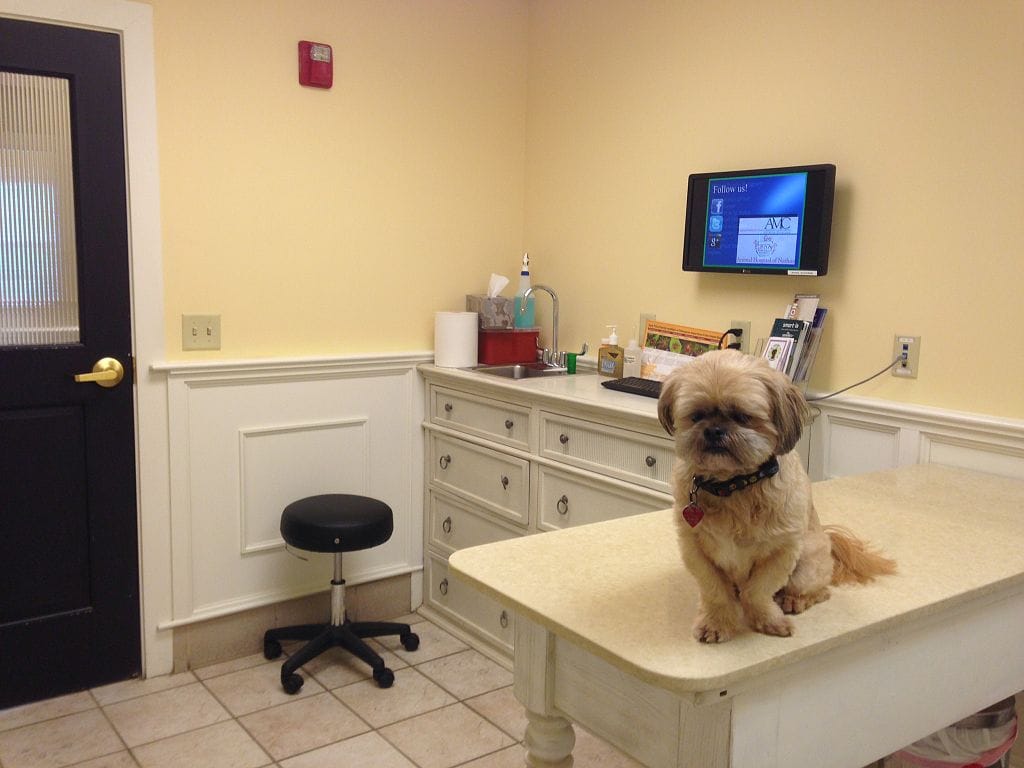vet / veterinarian / veteran

Vet has three distinct meanings. It can be a verb meaning to examine thoroughly, especially of a person slated for a position of responsibility; it can be a noun meaning a doctor who treats animals; and it can be a noun meaning an experienced person, especially a soldier or a former soldier.
The soldier sense of vet is a clipping of veteran, an Early Modern (or perhaps very late medieval) borrowing from classical Latin veteranus, meaning experienced, mature, and especially applied to soldiers. An early use of veteran is in Stephen Hawes 1504 Example of Vertu, where it refers to a knight who has killed a dragon:
Than came dame fayth that lady gloryous
Welcome she sayd with wordes amyable
I am ryght glad ye ar so vyctoryous
Of that foule dragon so abhomynable
She sayd that I was euermore stable
In her in dede eke worde and thought
Or elles my labour had ben to nought
Than spake the lady fayre dame charyte
Welcome vertue the noble veteran
Sythens that ye alway haue loued me
From the fyrst season that ye began
Bothe in your youth & syth ye were man
Ye haue had me in humble reuerence
And haue ben ruled by my preemynence
The clipping of veteran to vet was in place by the mid nineteenth century.
The animal doctor sense of vet is a clipping of veterinarian and veterinary. These words are also Early Modern borrowings from the classical Latin veterinarius, which was used as an adjective related to livestock and as a noun to a person who treated sick animals. We see the Latin words in Thomas Cooper’s 1578 Thesaurus linguæ, hinting that they were starting to appear in English usage:
Veterinàrius, veterenarij, m.g. Col. He that letteth horses or mules to hyre: a muletter: an horsecourser: an hackney man. Veterinárius. Col. An horseleach, or ferrour.
Veterinârius, Adiect. vt Veterinaria medicina. Col. The craft or science of an horseleache.
But we see veterinarian fully anglicized, with an English ending, in Thomas Browne’s 1646 Pseudodoxia epidemica:
The gall of an horse was accounted poyson, and therefore at the sacrifices of horses in Rome, it was unlawfull for the Flamen but to touch it; but with more difficulty, or hardly at all is that reconcilable which is delivered by our Countreyman, and received veterinarian, whose words in his master-piece, and Chapter of diseases from the gall, are somewhat too strict, and scarce admit a Reconciliation.
Veterinarian is the term used in North America, but in Britain one will also see veterinary used as a noun, a clipping of veterinary surgeon.
The clipping vet in this sense dates to at least the mid nineteenth century. (The OED marks this clipping as “chiefly British,” which is incorrect and inexplicable. It’s extremely common in North America, with the abbreviated form being perhaps more common even than the full veterinarian.)
The verb to vet was initially used to mean subjecting an animal to an examination by a veterinarian. We see this sense in Annie Thomas’s 1891 novel The Roll of Honor, where it is used in reference to a racehorse before a competition:
Have you seen Culverfield? The beast is going about saying that Beau is shaky in his fore legs. I shall have him vetted before the races, or they will hang back and won't plunge on him.
But it quickly acquired a more general sense of subjecting a person to examination prior to approval. We see this sense in B. M. Croker’s 1898 Peggy of the Bartons, in which the titular character, newly married to a soldier and stationed in India, is to be subjected to examination and approval by the other wives in the regiment:
The married people in this regiment are a desperately slow set, very different to the Blunderbores; they never entertain, or ask you to put your legs under their mahogany; but we will make a new departure. You will be having them round to “vet” you—at least, Mother Vallancy, I don't know about Mrs. Hesketh and Mrs. Timmins, as I never left a pasteboard on either of them. Life is too short and too pleasant to bother about calling on stupid, dowdy frumps.
Today, the verb to vet is commonly used in the context of investigation prior to the issuance of a government security clearance or elevation to some position of responsibility.
Sources:
Browne, Thomas. Pseudodoxia epidemica. London, T. H. for Edward. Dod, 1646, 3.2, 108–109. ProQuest: Early English Books Online.
Cooper, Thomas. Thesaurus linguæ, London: Henry Denham, 1578, s.v. veterinarius, sig. Qqqqqq.1. ProQuest: Early English Books Online.
Croker, B. M. Peggy of the Bartons. New York: R. F. Fenno, 1898, 138. HathiTrust Digital Archive.
Hawes, Stephen. Example of Vertu. London: Wynkyn de Worde, 1504, sig. ff.3v. ProQuest: Early English Books Online.
Oxford English Dictionary, third edition, June 2017, s.v. vet, v., vet, n.2, veterinarian, n. & adj., veterinary, adj. & n., vet, n.1 & adj.2, veteran, n. & adj.
Lewis, Charlton T. and Charles Short. A Latin Dictionary. Oxford: Clarendon Press, 1879, s.v. veteranus, veterinarius.
Thomas, Annie (Annie Hall Cudlip). The Roll of Honor. New York: John W. Lovell, 1891, 130. HathiTrust Digital Archive.
Image credit: Mark Buckawicki, 2014. Wikimedia Commons. Public domain photo.